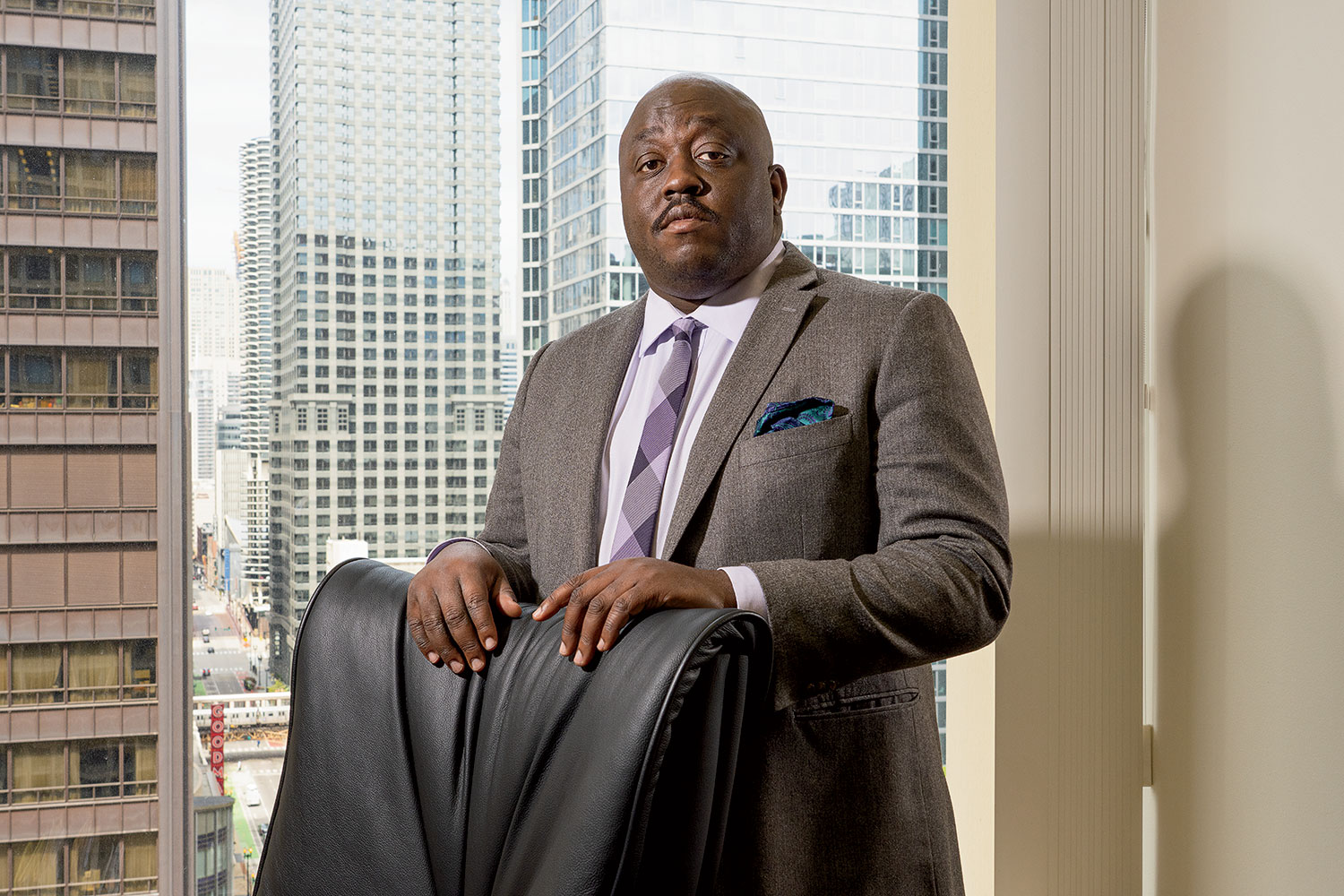What was your view of the police while growing up in West Pullman?
My community had its share of violence. Even with all of that, the thing that made me most scared was red and blue lights in my rearview mirror. Billions of dollars are paying for this institution, and people still have to have conversations with their children about how to not get killed by the police.
What did your parents tell you?
Say “Yes, sir. No, sir.” Keep your hands on the wheel. Don’t be disrespectful. Don’t make any fidgety movement. Follow their directions. Pray.
What drew you to this role?
I interned at the public defender’s office as a law student. One of my tasks was going into the back of the courtroom and meeting with the men and women who have court dates that day. One of the first days, I link eyes with a guy I went to grade school with. After that, I looked at a fifth-grade picture and compared the number of dudes that were in jail or lost their lives to the number of guys that had gotten through. That day I decided I was going to be a public defender.
What do you know now that you didn’t know then?
The public defender’s office has a monopoly, quite frankly, on the stories, the narratives, the data, all the things that we can use to learn about why the system is broken. Our attorneys and investigators are literally in the trenches on the fight against mass incarceration, on the fight against wrongful convictions, on the fight against permanent punishments. I’m so excited to put our team in the center of this conversation around reform.
What changes do you have in mind?
Substantive sentencing reform. We use our prison system to punish. I don’t think that we do a very good job of using our system to get folks better. I would really think about how we use our prisons, how long people go to prison, and how often we give folks felony records.
How hopeful are you about being able to make changes?
People are understanding how broken the legal system is and how we can benefit from changing it. With that said, we live in a big city where people are nervous about crime. Sometimes, they convolute making the system more fair with making us less safe. It’s not true. But that common thought is always a risk.





Comments are closed.